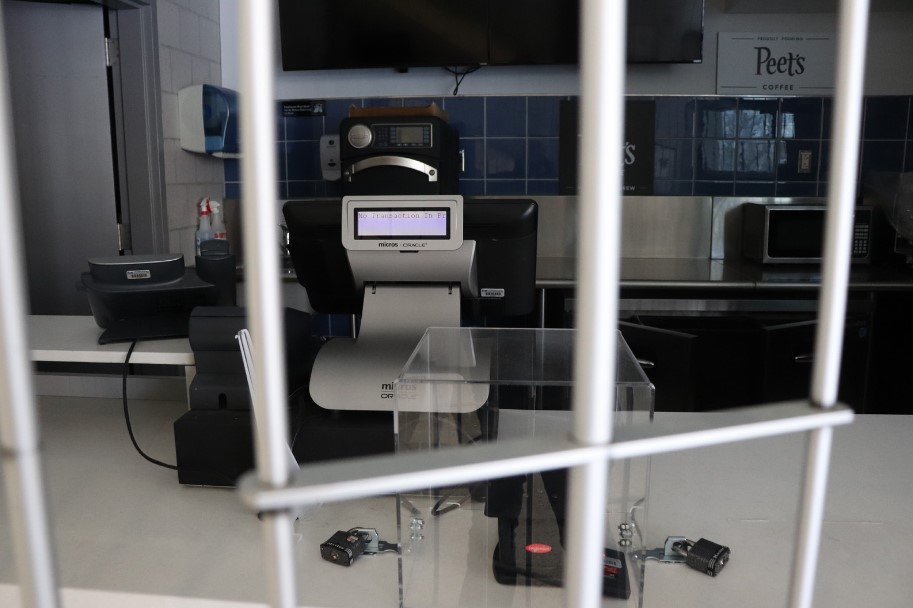HOPE WINTER
Special to The Leader
Feeling hungry when you get out of class? Then you had better get to the dining halls before they close.
This semester at Fredonia, dining options have become scarce and if you don’t plan out your meal times, you might have to go hungry.
Due to the pandemic, the Faculty Student Association decided to make cutbacks to the dining services offered around campus.
These cutbacks are solely placed to offset the projected $1.5 million budget deficit they will face at the end of this semester.

“As of right now, we have lost about $600,000 for the Fall Semester and we’re probably going to lose about $400,000 for the Spring Semester,” FSA’s executive director, Darin Schulz said.
“Most students are not coming to campus,” he continued, “and if they are coming to campus, it’s maybe one or two days a week and they are not here all day like how they would be in a normal semester.”
In response to the decline in commuter use of the dining facilities, FSA has decided to close almost all cafes around campus and shorten dining hall hours.
“We tried to minimize the impact on the student and get the most efficient delivery of services that we can obtain,” said Schulz.
Limiting dining hall hours may seem minimal; however, these minor cutbacks are rippling into bigger problems for students and faculty on campus.
Due to most cafes closing, quick dining services such as Starbucks and Tim Hortons are seeing more of an increased crowd during the day.
“After a certain point in the day, usually around noon, there is a nearly constant line to the stairs up to Cranston. Students just have fewer options now,” said Starbucks employee and Fredonia senior, Emily Sando.
“It can make Starbucks feel a little hectic, and I think my coworkers and I handle it well.”
Starbucks employees were trained with newly-added safety restrictions and sanitization methods to keep these increased crowds safer.
For other campus food workers, the changes to the work day are not as easy on them.
“I went from working four days to five, and I’m not really getting any more money and I lost my lunch break,” said Janice Tubbus, a Willy C’s employee.
She has worked for FSA for almost 20 years.
“I remember back when I first started, we were open until midnight and then it became 11. I don’t think it’s fair to the students. I think the students prefer it to be open later.”
Around 1,500 to 1,550 students still live on campus and use these dining services daily.
Schulz encourages students to utilize the services while they’re open and to retrieve their late meals and store them in their rooms for later.
Kailyn Reynolds, a sophomore and resident of McGinnies Hall practices planning her meals ahead.
“I have had to go to the Convenience Store to pick up pre-packaged meals to eat later on that specific day because I knew that after getting out of my long day, I would not want to eat Willy’s again and again, almost every night,” she said.
“I wish that the FSA hours would go back to normal or at least stay open a little later. It feels a bit strange when there is nothing open past 7 p.m. besides Willy’s.”
These changes are projected to save FSA roughly $200,000 more than last semester, and FSA also received the Paycheck Protection Loan through the Cares Act.
This loan will help reimburse the loan the nonprofit took out to pay their employees.
Despite the changes of food availability on campus, meal plan prices have remained the same. However, they are projected to be raised at least $50 or more next semester to help the budget for next year.
